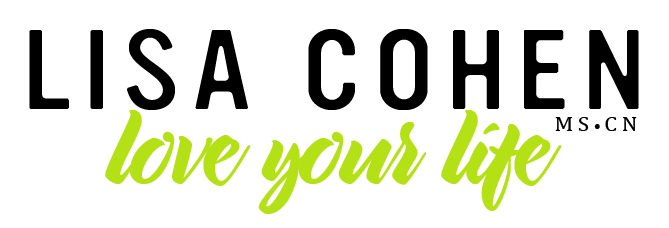The Scoop On Multi-Vitamins
/Multivitamins are exactly what they sound like: multiple vitamins. They're supplements that contain several different vitamins in each one. They can also contain minerals and other ingredients like amino acids or fatty acids. And because there are multiple ingredients, there usually provide a very low dose of each ingredient.
There are 13 vitamins and at least 16 minerals that are essential to health. You need certain amounts of all of these nutrients for optimal health. In fact, nutrient deficiencies can impact immunity, reproduction, growth, hormone balance and many other important processes in your body.
You may have heard or read on the internet that if you follow a "balanced diet," you'll definitely get enough vitamins and minerals. But the truth is, many people in the US are nutrient deficient.
Do multivitamins work?
So, what exactly do we know about the health benefits of multivitamins?
Here’s a quick summary of the science:
● Multivitamin use is linked with improved moods. Interestingly, if someone has nutrient deficiencies, they may have mood imbalances. So, if the multivitamin addresses an underlying deficiency, this makes sense.
● In terms of memory and cognitive performance (ability to think), there seems to be an improvement in people who regularly take multivitamins.
● In terms of cataracts and age-related macular degeneration, there seems to be a slight improvement.
● In terms of heart disease, the results are mixed. There may be an increase, or a decrease, or no effect on risk of heart attacks.
● In terms of cancer, there is a slightly reduced risk of certain cancers in men.
● In terms of mortality (death), there doesn't seem to be a clear increase or decrease in mortality rates for people who take multivitamins.
So the evidence is clear that multivitamins aren’t a magical “good health and vitality pills” They’re not guaranteed to improve your mental or physical health, or help you live longer; but, they do have some health benefits.
Are multivitamins safe?
Just about every study that looked to see if multivitamins were health-promoting, also looked at side effects. They have consistently shown that multivitamins are very safe.
Super high doses of some nutrients can be harmful, but multivitamins are safe for most people. Unless you have a knowledgeable practitioner advise otherwise, you want to stick to the dose on the label.
However, it is not uncommon for some supplements to have been tested and found to contain different ingredients than what's on the label. Sometimes they contain ingredients that are not good for your healthy.
Always check labels and avoid products with the following ingredients:
Magnesium Stearate
Artificial Coloring or Flavoring (especially in children's viramins!)
Titanium Dioxide
Magnesium Silicate
Anything in a propyl or ethyl group
GMO’s
Choosing supplements that are from reputable companies is so important. When shopping for supplements, there are a few things you can keep an eye out for to help ensure that your supplements are free of synthetic additives.
Here are some things you can do:
Research ingredients that are banned in Europe, since they have stricter food regulation laws there.
Buy non-GMO, organic and vegan where possible or necessary.
Buy pure whenever possible – bulk powders, pure liquids and capsules (rather than tablets) are less likely to contain harmful ingredients.
Have a conversation! Any solid business – whether it’s the supplier or the actual manufacturer – should be happy to answer your questions.
Be extra careful when buying “cheap” products online – if something is unusually inexpensive, it probably means it just has less of the actual substance in the package to begin with.
Conclusion
Multivitamins are not a short cut to optimal health. There is limited evidence that they improve health for most people. But there are some benefits.
Since they contain low doses of many different nutrients, they're also safe (as long as you are taking a high quality product.)
Of course, taking a multivitamin is not going to overcome the negative effects of a poor diet. I always recommend eating a balanced diet of whole foods with lots of nutrients coming from complex carbohydrates, protein, and fat. Check out my Superfood Salad recipe below! It is chockful of nutritional goodness!
Recipe: Lisa’s Superfood Salad
Serves 2
2 handfuls of dark greens (e.g. kale, spinach, arugula, etc.)
½ cucumber, chopped
1 avocado, chopped
1 bell pepper, chopped
1 carrot, grated
2 handfuls grape tomatoes
1 handful fresh blueberries
2 Tbls hemp seeds
2 Tbls sunflower seeds
2 Tbls pepitas
Salad Dressing:
3 tbsp cider vinegar
2 tsp Dijon mustard
2 tsp honey or maple syrup
1 dash salt
2 dashes black pepper
1/3 cup extra virgin olive oil
Instructions:
Make the dressing by whisking together the vinegar, mustard, honey/maple syrup, salt, and pepper. Slowly drizzle in olive oil while whisking to emulsify. Pour over salad before serving.
Top with salmon, shrimp, chicken or beef for added protein
Serve & enjoy!
References:
https://authoritynutrition.com/do-multivitamins-work/
http://thewellnessbusinesshub.com/yes-nutrient-deficiencies-heres-proof-can/
https://www.ncbi.nlm.nih.gov/pubmedhealth/PMH0022955/



